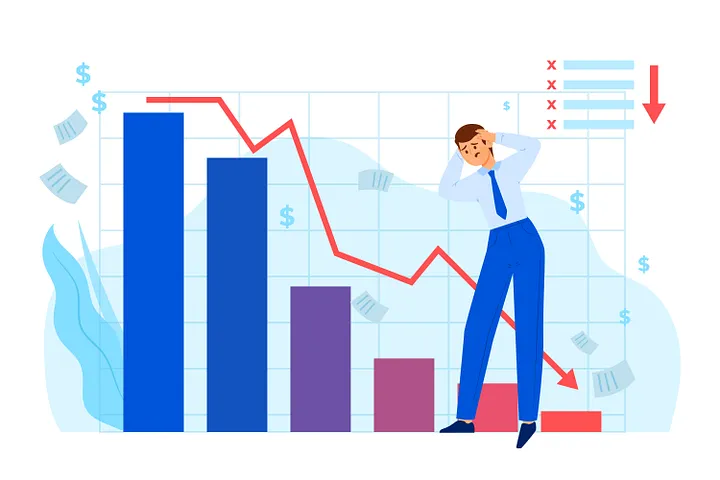
The economic crisis has arrived, and it’s time to face the challenges head-on. Whether you’re single or have a family, there are some essential steps you can take to prepare. Here’s a comprehensive guide to help you survive the crisis, from understanding your finances to getting by on tight resources.
What is the Economic Crisis?
The economic crisis is a time of economic recession that began in 2007 and lasted until early 2009. The crisis was caused by the Great Recession, which was a series of global economic downturns that started in 2001 and continued until 2007. During the Great Recession, the stock markets crashed, international trade stopped, interest rates increased, and the jobs market lost jobs.
The Economic Crisis Causes
The causes of the economic crisis are complex but include several factors such as overproduction of goods and services, low borrowing costs for businesses, weak investment decisions from firms, and excessive debt issuance by governments.
The Economic Crisis Solutions
There are many solutions to the economic crisis including stimulus programs (which help companies increase production) and austerity measures (which reduce government spending). However, each solution will have its own set of challenges and benefits. Some popular solutions include: increasing lending subsidies to businesses so they can borrow cheaply again; creating new jobs through government stimulus programs; increasing access to credit; and reforming financial systems so that they are more open and transparent.
How to Survive the Economic Crisis.
If you’re looking to weather the economic crisis, it may be best to look for a job. The process of finding a career during an economic downturn can be difficult, but with some planning and effort, you can succeed. You can also invest in assets such as stocks and real estate to help you stay afloat during tough times. Finally, make sure you stay safe and Prosperous by taking precautions against money laundering and other criminal activities.
Invest in Assets
Investing in assets can help you weather the storm while still being able to live a comfortable life. Stock prices can go down during tough times, but that doesn’t mean your investment will fail; instead, it may take time for prices to rebound. In addition, don’t forget about safety: always keep your finances safe by protecting your account numbers and passwords as well as your investments.
Save for the Future
When it comes to saving money for the future, there are two main strategies: putting money away in high-yield savings accounts or investing in stocks that offer prospects for stable returns over time. High-yield savings accounts offer stability compared to low-yielding options like checking or savings accounts that could lose value at any time. Storing your money in this way also helps protect it from market fluctuations — which could cause big expenses down the road). Additionally, investing in stocks will allow you to reap the benefits of long-term growth while holding onto their value (a benefit many people find appealing). Finally, make sure you have contingency plans in place should something happen to your savings account or stock portfolio — like a natural disaster — meaning they won’t provide enough income to cover costs associated with your emergency situation).
Stay Safe and Prosperous during the Economic Crisis
Safekeeping your finances is key during any economic downturn; however, staying safe is especially important when interacting with government officials or those who hold power over our lives (like bankers or politicians). Take measures such as using common sense when bargaining (such as not asking for too much from someone without offering something back), being aware of where you put your personal belongings (including leaving them unlocked at home), and being familiar with local scams (such as calling yourself “the new president” so someone will give them access to expensive items), and keeping a healthy financial reserve (which is typically around $20 000 per person). Additionally, avoid risky activities — such as betting on sports matches or making high-risk investments — and be prepared for unexpected events by practicing mindfulness techniques like yoga or meditation.
Conclusion
The Economic Crisis is a time of great uncertainty and stress. Find a job, invest in assets, and save for the future to stay safe and prosperous during this difficult time.
